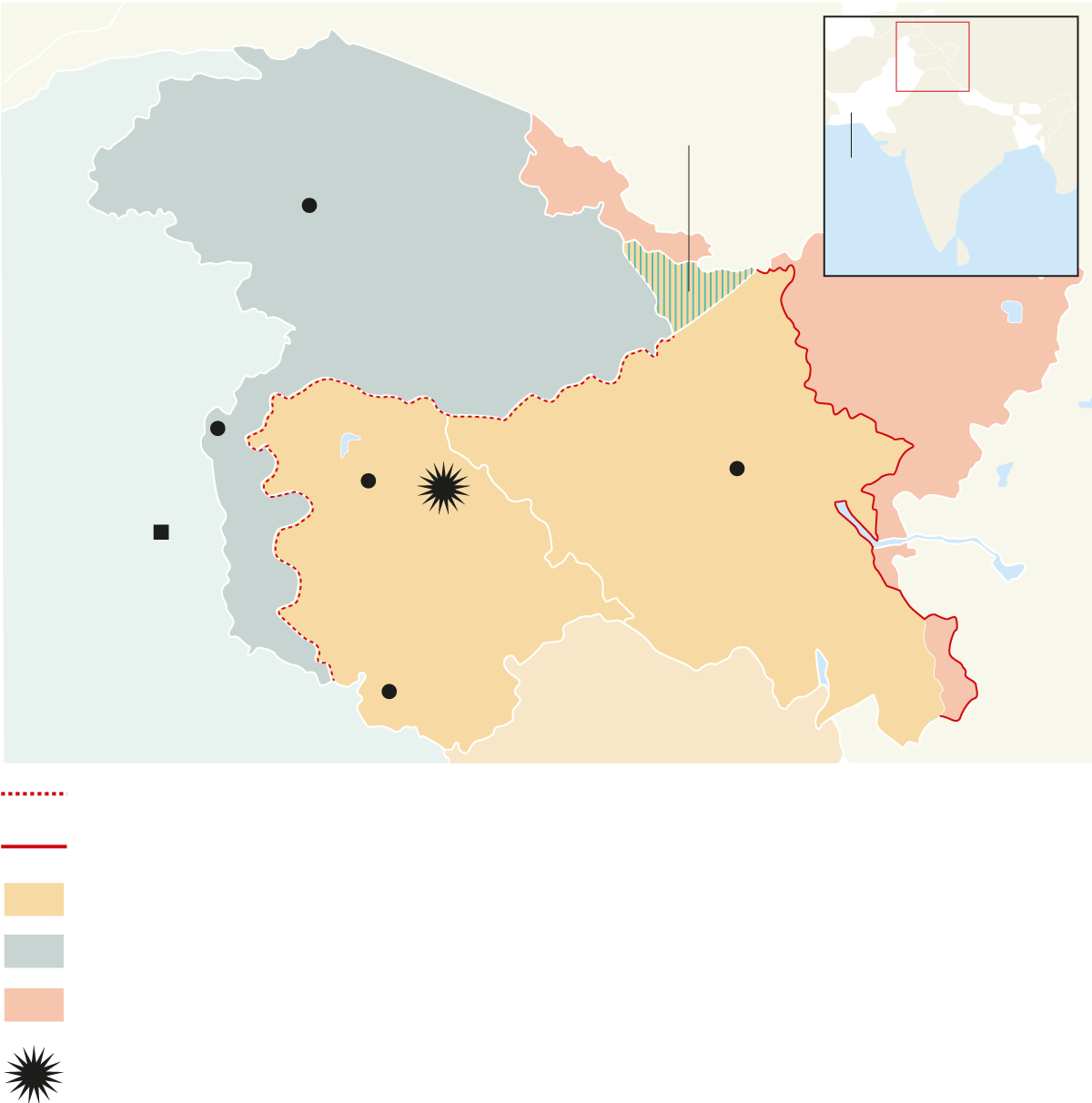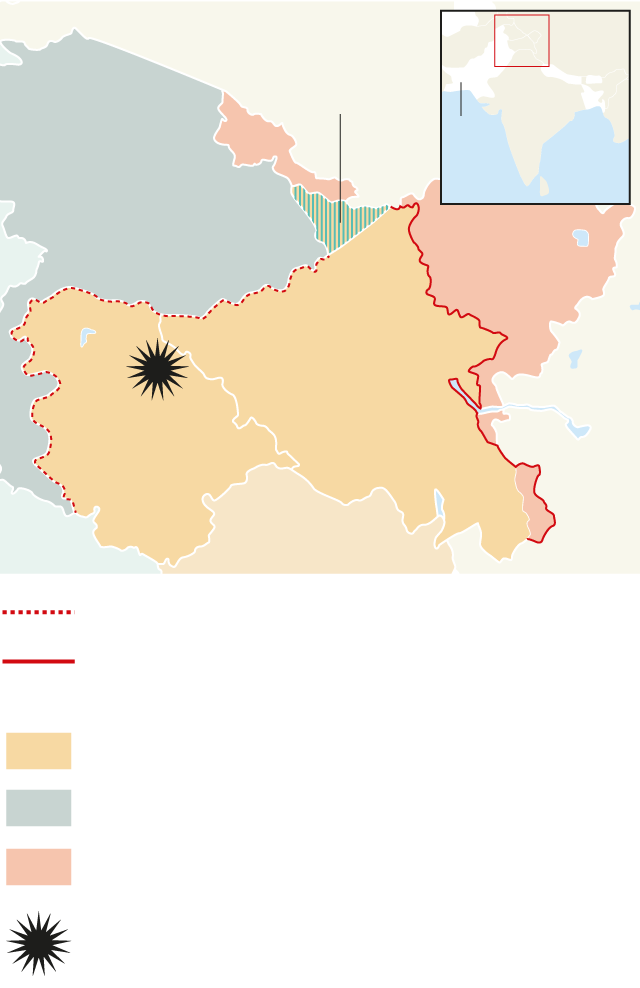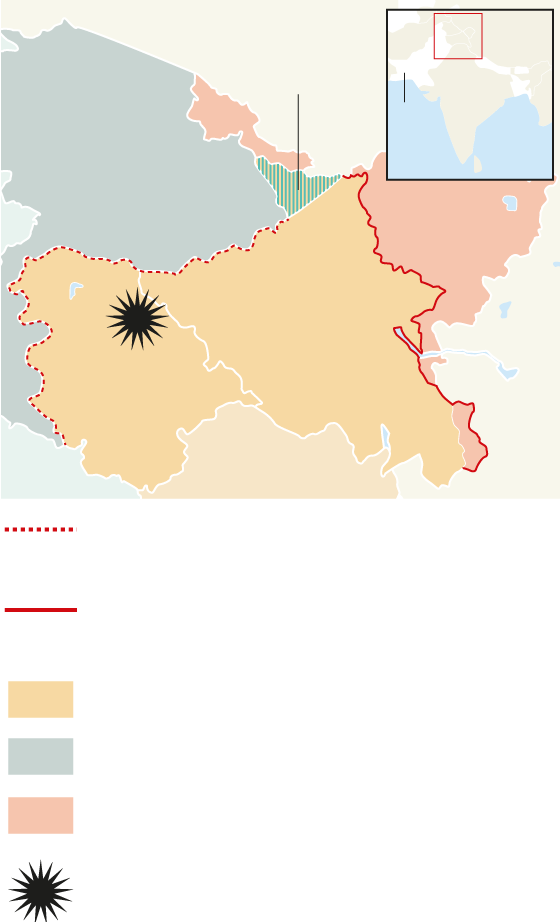Tensions in Kashmir have once again brought India and Pakistan to the brink of war.
The United Nations is calling for "restraint" between two nuclear powers that have a turbulent history of warfare.


LondonThe United Nations on Friday issued an urgent call for "restraint" in India and Pakistan, after the armies of both countries were involved hours earlier in an exchange of fire early this morning on the Kashmir border, along the Line of Control. The incident, confirmed by both sides, caused no injuries, but represents a further sign of the escalating tension shaking the region since the murder of 25 Indian tourists and a Nepalese man last Tuesday in an attack at the tourist hill station of Pahalgam, in the Indian state of Jammu and Kashmir.
Indian and US intelligence have attributed the attack to the insurgent group Resistance Front (TRF). The TRF is an Islamic guerrilla group active since 2019 in Indian-controlled Kashmir and has ties to Lashkar-e-Taiba (LeT), an internationally outlawed Pakistani jihadist organization. Many analysts suspect that the TRF acts as the political arm of the LeT. But Pakistan denies any involvement with or protection of the insurgents, who are fighting for the independence of Indian-controlled Kashmir or its merger with Pakistan-controlled Kashmir. The TRF emerged after India revoked the territory's autonomy in 2019, and Since then he has carried out various attacks.
This week's action has rekindled a historic conflict that flares up from time to time, directly impacting relations between the two nuclear powers. The atmosphere of diplomatic confrontation between the governments of Delhi and Islamabad has also spilled over into the streets of some cities, where both communities make no secret of the distrust with which they view each other and where episodes of harassment have occurred. The last diplomatic crisis took place in 2019. Washington's intervention prevented an open war, which would have involved two nuclear powers. The new mess, with a White House with too many open fronts and probably not much desire for mediation, does not inspire optimism, also because, for the moment, there are no open channels of dialogue between Delhi and Islamabad.
Indian retaliation
Indian security forces have reportedly identified three gunmen—out of four attackers—from Pakistan as suspected perpetrators of the attack, but have not made any arrests. In retaliation for the act of "sponsoring" terrorism, India has canceled visas for Pakistani citizens with immediate effect, expelled several diplomats, and also suspended a vital water-sharing treaty with Pakistan, in force since 1960.
At the same time, it has closed the Attari-Wagah land border, the most important in the area. And Indian Prime Minister Narendra Modi has promised to pursue terrorists "to the ends of the Earth," hinting at the harsh measures he will take. "Terrorism will not go unpunished," he added at an election event, setting a forceful tone and appealing to the usual heightened Hindu nationalism he preaches.
From Islamabad, Pakistani Defense Minister Khawaja Asif responded to Modi's threats with a clear warning. His country will not stand idly by and will adopt the same diplomatic measures in response to the escalation. Pakistan, in fact, has closed its airspace to all Indian airlines, suspended all trade through its territory, and suspended visas. In this context, the minister also asserted that the suspension of the water treaty would be considered "an act of war."
Treaty on the apportionment of water
This historic water resources pact establishes how the Indus River system, which runs between the two countries, is managed, dividing control between the flow of at least three very important rivers (the Indus, Saraswati, and Ghaggar-Hakra) and their tributaries. The treaty, in fact, has the credit of having managed to avoid a large-scale conflict between the two countries over this issue. Around 80% of Pakistan's irrigation water supply comes from this river system.
The history between India and Pakistan has been marked by continuous conflict, beginning with the wars of 1947-1948 and 1965, centered precisely on the dispute over Kashmir. Since then, several clashes have followed, including the 1999 Kargil War and numerous smaller episodes of tension. These conflicts, coupled with the fact that both countries possess nuclear weapons (172 for India and 170 for Pakistan), would add to the seriousness of a potential escalation of violence.
Since the partition of India following independence, Kashmir has remained a region divided between the two states. The part controlled by India, with an area of 143,000 km², has a predominantly Muslim population (97%) of 12.5 million inhabitants. This contrasts with the part under Pakistani control, Azad Kashmir, with an area of 13,000 km² and around 4 million Muslims.
In a context where Islamophobia is already normalized in IndiaAn attack like Tuesday's further fuels repression and violence against Muslims, who must demonstrate a national steadfastness in support of India without compromise, or risk all kinds of reprisals from the Hindu nationalist movement (Hindutva). Through social media, these radical anti-Muslim groups are already calling for the annexation of Pakistan-administered Kashmir.



